Dacia UK is poised to lead the Renault Group with new digital innovations as it looks to strengthen its position as a “brand in its own right”, according to director Luke Broad.
A year on from his promotion from head of sales, Broad told AM he had left no stone unturned in his bid to leverage the success of the brand as it delivered record profit margins and market share in 2022.
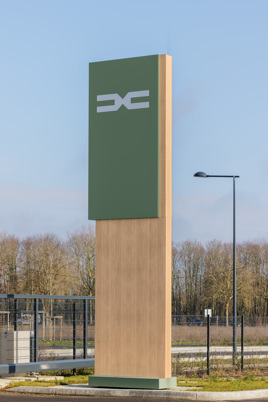 And, while agency model retail is not on the cards for the value-driven carmaker, Broad is keen to streamline Dacia’s omnichannel retail offering in a bid to help improve customer experience alongside a new brand identity and corporate identity (CI) for its franchised dealerships.
And, while agency model retail is not on the cards for the value-driven carmaker, Broad is keen to streamline Dacia’s omnichannel retail offering in a bid to help improve customer experience alongside a new brand identity and corporate identity (CI) for its franchised dealerships.
“As part of the Renaulution strategy (Renault Group chief executive) Luca de Meo recognised that the UK is really digitally advanced versus other economies, except for China. Because of that, the UK is the digital laboratory for the Renault Group and Dacia is the lead brand,” says Broad.
“While I don’t see that there’ll be that many customers buying a car from start to finish online, we have to offer the best possible retail experience and, today, that includes a seamless digital journey.”
OMNICHANNEL PUSH
Step one in Broad’s bid to improve Dacia UK’s omnichannel retail offering was a bold one.
He took the decision to decommission the pioneering Dacia Buy Online platform – launched to much fanfare in 2018 – to oversee the creation of a more customer and dealer-friendly digital platform.
Ultimately, Dacia sold just 250 vehicles via its online portal and Broad says: “I think the problem was it was the right strategy, but the wrong execution.
“We had a lot of system integration errors our side. Customers were being taken offline because they failed finance credit checks and the experience wasn’t great. “So, we’re currently building the next evolution of Dacia Buy Online, the idea being it’s fully integrated with all our systems at Dacia UK, it’s all live updating and the customer can start their journey online, finish it offline, or do whatever they want.
“You’ll see the brand start to become a lot more digital in the next six-to-12 months if all goes to plan.”
Aligning with Dacia’s digital innovation journey is a virtual showroom located in Milton Keynes.
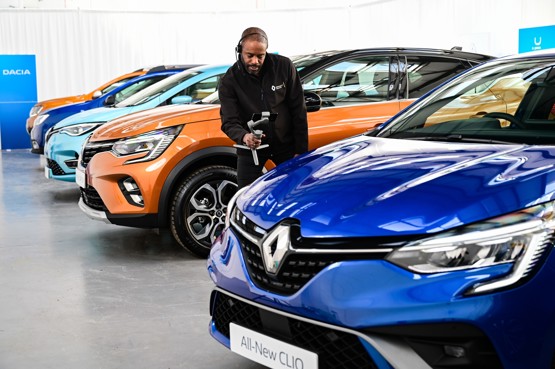 The facility provides guided live online vehicle tours and buying advice from a Dacia product guru between 11am and 9pm.
The facility provides guided live online vehicle tours and buying advice from a Dacia product guru between 11am and 9pm.
It currently delivers around 10 presentations each day, with shorter calls lasting an average of 15 minutes and longer calls regularly lasting 45 minutes to an hour, according to Broad.
He says: “What’s great about them is when – and if – they are ready to buy, the customer is already fully qualified, they know everything they need to about the car. All that’s left to do is head down to their local retailer and finalise the information.
“It’s a good investment and something that I really believe in because it makes our retailers’ jobs easier. Like everything we’re aiming to do with our technology, it’s not about replacing our retailers, it’s complementing them.”
Despite the shift towards improved omnichannel processes, Broad insists that direct sales delivered by agency model retail agreements were not part of the plan.
“Today, the model with our dealers is working,” he says. “We see our dealer partners as an asset, and we believe in the strength of the retail network.”
Dacia UK’s retailers may be reassured by Broad’s comments about the importance of the network as they prepare to make their biggest single investment to date in the brand.
The value-driven sister brand to the Renault franchise currently operates from 148 showrooms, with all but two sites sharing a roof with the mainstream French brand.
But a review of the internal space set aside for Dacia is being implemented alongside the roll-out of a new CI featuring a new logo, khaki colour scheme and a “cost-effective” and “pared-back” design incorporating the widespread use of recycled materials.
For Broad, the new CI forms a statement of intent.
“I don’t want it to be a sub-brand of Renault in the showroom anymore”, he says. “We’re not a small brand of Renault anymore.”
Broad leads a Dacia UK business unit launched in 2021 that is more autonomous than ever from its Renault sister and his desire to see the budget offshoot succeed in its own right is clear.
“I think we’ve got a great brand with a really great, clearly defined place in the market and direction,” Broad says. “It’s definitely a brand on the move.”
RANGE REFRESH DELIVERS RESULTS
Dacia’s new look is being introduced as retailers benefit from selling the widest and freshest range of vehicles in its history.
Last year, the new Sandero and Sandero Stepway crossover arrived on the market in March, followed by the new Duster in September.
This summer, the Jogger MPV joined the line-up, with the unique selling point of being the UK’s cheapest seven-seat vehicle.
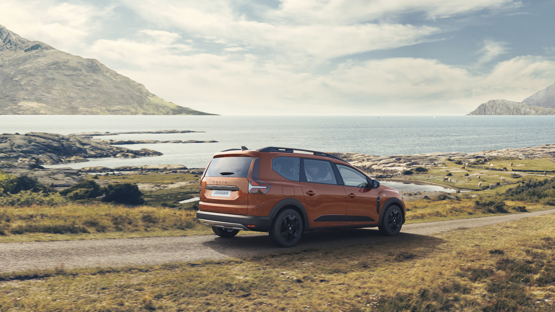 COVID prompted a 38.9% slide in registrations from a record 30,951 units and 1.34% market share in 2019 to 18,918 and a 1.16% share in 2020. Registrations dipped a further 7.1% to 17,568 and a market share of 1.07% last year.
COVID prompted a 38.9% slide in registrations from a record 30,951 units and 1.34% market share in 2019 to 18,918 and a 1.16% share in 2020. Registrations dipped a further 7.1% to 17,568 and a market share of 1.07% last year.
The arrival of new product appears to be playing its part in 2022.
Year-to-date to the end of August registrations were up 83.2% at 17,216 and July saw its market share soar to 2.46% as it delivered 1,691 units – up 108.3% year-on-year.
Broad expects Dacia UK to end 2022 with between 29,000 and 30,000 registrations and wants to double that volume by 2025, with supply constraints the only uncertainty.
He says: “It’s not some sort of vanity project, I genuinely believe there is demand for our product.
“When I can see what’s coming in the pipeline for the next three-to-four years there’s absolutely no reason why we won’t be doing those sorts of volumes and becoming a major UK retail player. That’s my ultimate ambition for our brand, because I really do think it deserves it.”
Key to Dacia’s product appeal could be its ability to bring affordable electrified products to a market where MG currently leads the way.
A hybrid version of the Jogger will kick-off its electrification in 2023, but Broad is keen to see the fully-electric Spring EV brought to the UK as soon as possible.
Commenting on the prospects of adding Europe’s cheapest EV – the Spring is priced from €12,403 (£10,630) in France – to UK dealerships, Broad says: “We have put a really strong case forward to the Dacia business unit.
“As both a sales and marketing tool I would fight tooth and nail to get that car because it’s a no brainer, isn’t it?”
Dacia UK already has packed order books for its new cars, though, and has faced challenges in delivering its 2022 volumes due to supply shortages.
Wireless Apple CarPlay is one item that has proved hard to source, but Broad says the brand will always look to provide added value to customers when a new car’s specification falls short of expectation.
Describing the issue as “really quite painful”, Broad says: “You don’t want it to be a traumatic experience when it comes to handover. If we have had to remove something, we will always give the customer something to recognise that we’ve taken some value from a car.”
PROFIT BOOST
Broad hailed the efforts of his retail network and the new Dacia business unit, which now features dedicated finance, aftersales and quality functions for the first time, in helping to drive registrations and profits in 2021 and 2022.
He says: “In such a short period, we’ve set up quite a good, dedicated organisation and we’re really starting to get things moving on, giving the brand the focus it deserves.”
Despite the lower volumes of recent years, Broad says an increase in prices has improved profitability for retailers. In 2021, Renault Group franchisees achieved a 2.1% average return on sales, rising to 2.4% year-to-date in 2022 at the time AM interviewed Broad.
While the manufacturer does not divide its RoS figures out, Broad says Dacia’s own improved profitability was reflected by an 11% increase in chassis margin which saw retailers achieve a four-figure profit per vehicle for the first time.
“Some of that is due to a few price rises as you expect with cost of raw materials going up, but it’s not only that,” says Broad.
“We’ve also introduced a quality programme so, for those retailers who are looking after our customers and are generating really positive online reviews and online sentiment, then we reward them for doing that, which is contributing towards their profitability.”
Central to the Renault Group’s Renaulution strategy is a push to halve the OEM’s number of vehicle platforms from six to three and reduce its manufacturing capacity from four million (2019) to 3.1 million by 2025 in a bid to cut €600 (£505) from the cost of producing each of its vehicles.
It also wants to transition from being “a car company working with tech to a tech company working with cars, making at least 20% of its revenues from services, data and energy trading by 2030”.
The brand’s digital evolution in the UK market may help to deliver the latter.
Part of the plan to drive profit still further for UK retailers includes the sale of merchandise and accessories in its dealerships and, more significantly, a focus on driving retention in both sales and aftersales.
RETENTION
Although Dacia’s PCP (personal contract purchase) renewals rate stood at 28% when AM spoke to Broad, he claims that 80% of buyers stay with the Renault Group and 64% of Dacia customers – cash and finance buyers – stay with Dacia.
The brand’s finance mix comprises 60% of buyers who opt for a PCP.
Cash discounts on cars – which are already the market’s cheapest – are largely unheard of, but Broad tells AM that a 5.9% APR finance offer and the potential to offer two free services to customers taking up a PCP are incentives employed by retailers to encourage finance take-up.
In aftersales, 80% penetration with service plans helps keep customers in the franchised retail network.
Broad describes the asking price of £9.99 per month for an extended service plan as a “no brainer” for car buyers spending about £179 per month on a new car, suggesting the offer provided security in an economic climate experiencing a spiralling cost of living.
But he adds: “However, what we do see, and I don’t think we’re alone in this, three, four years on, we do see a really heavy drop off.
“That’s one of our key challenges that we need to work on for the next year or two.”
Broad says Dacia UK had benchmarked the service retention strategy of “a Japanese competitor” as it hatched a plan to drive a broader car parc to its franchised workshops.
In June last year Toyota and Lexus launched a service-activated Relax aftersales scheme which extended aftersales customers’ car warranty to 10 years and 100,000 miles.
“It could be that we create no-nonsense service plans where that is the price throughout the lifetime ownership of the car,” Broad says.
“There’s lots of things we can do, it’s just what can we do that is very Dacia.”
REPUTATIONAL VALUE
Delivering value is set to become the core tenet of Dacia UK’s approach to car retail, rather than positioning it as the cheapest brand available.
Although this shift in terminology may have been prompted by some fairly sizeable price increases in recent times – the new Sandero’s £7,995 launch price has now crept up to £12,595 – Dacia still undercuts rivals.
And Broad wants to highlight the value, simplicity and “robustness” of its offering to both customers and retailers alike as it continues to make strides in a new, more independent, direction.
From a public-facing point of view, Broad suggests the brand is looking for partnerships and sponsorships to grow its profile.
He says: “It’s easy to forget that Dacia is a young brand, we only launched in 2013 and it does take time to get your name out there.”
AM asked Broad whether he felt poor Euro NCAP safety ratings harmed the reputation of Dacia among prospective buyers.
The Jogger and Spring both attracted one-star ratings in recent collision tests.
Broads says there is a cost consideration attached to the fitment of advanced safety technologies including pedestrian detection, blind spot alerts and driver fatigue warnings, adding: “We focus on making the cars safe. Today, I’m not seeing any negative reputational damage off the back of it because, ultimately, I think customers appreciate what is tested and what that is all about.”
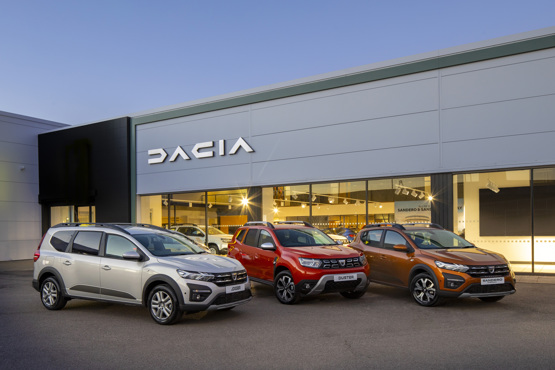 From a franchised retail perspective, the drive to grow the brand’s reputation, as its image and model range continues to get a refresh, could be bolstered through wider engagement with the National Franchised Dealer Association (NFDA) bi-annual dealer attitude survey.
From a franchised retail perspective, the drive to grow the brand’s reputation, as its image and model range continues to get a refresh, could be bolstered through wider engagement with the National Franchised Dealer Association (NFDA) bi-annual dealer attitude survey.
Just a third of its franchisees responded when Dacia finished 13th in the ’overall’ ranking of 31 brands in the winter 2021/22 survey.
Broad hopes the creation of a dealer council separate from the Renault brand for the first time, efforts to encourage his team to dedicate a day each month to visiting franchisees and his efforts to act on feedback from the network will result in improvements.
“The feedback we get from retailers is invaluable and, hopefully, they can see that we’ve been working to act on it,” says Broad.
“While profitability is improving, we’re a straightforward brand to work with, with minimal overheads.
“I’ve taken on board suggestions about our approved used car programme and see that there’s scope for improvement there that we will act on.
“A lot has happened since I joined the business, but I think we’re making good progress. I’m leaving no stone unturned to realise the brand’s potential.
“I hope that our franchised partners can see that and are excited about the direction we’re heading.”

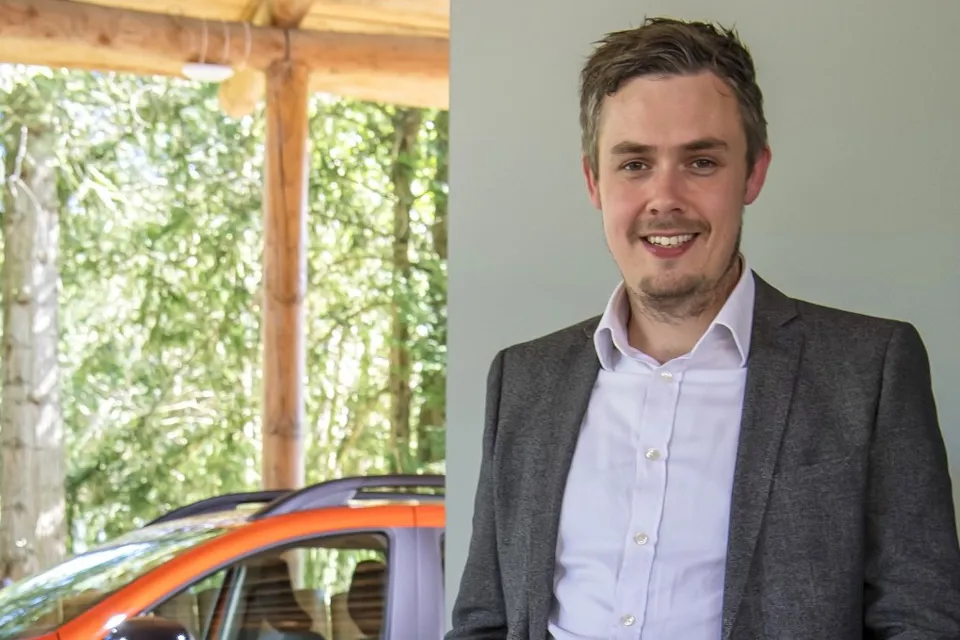






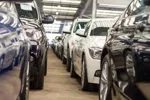




Login to comment
Comments
No comments have been made yet.